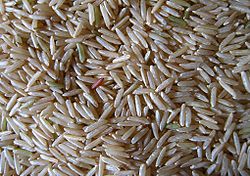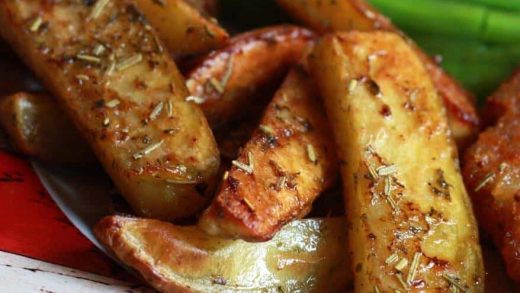These are tough times for lots of us. But there are ways to eat, and eat well, even when you don’t have much money.

The late chef, author, and restauranteur Kurt Friese shared some of the lessons he learned as a young bachelor working an internship during his college years. He recalls getting from his mother these survival tips.
“Foods that are traditionally cheap, she said, were rice, potatoes, canned tomatoes, canned beans and pasta. Of the rice, she said to buy the biggest bag that looks clean and never buy anything in a box. Potatoes should be purchased 10 pounds at a time. She said, ‘Idahoes are best for baking and reds are best for salad, but this is no time to be picky. SMELL THE BAG before you buy it. The odor of a rotten potato is not subtle.’ “
That’s pretty good advice. I especially like the bit about the potatoes. I have come home more than once to find I had a bag with half the contents bad and destined to be thrown away. Don’t neglect to buy rice. There’s a reason it is a primary staple in so much of the world. Rice is the most digestible and versatile starch. But I won’t kid you: making rice can be a trick. It’s not hard, but it takes practice. I’ll talk more about that later.
Friese also points out that fresh eggs from a farm are better than what you can get in the modern supermarket, and I have found that true myself. These eggs may cost a bit more and are usually brown instead of white, but the taste difference is remarkable. You should learn how the calculate the cost differences between the various sizes of eggs. Stores know that large size eggs are the most popular and are often priced higher than the difference should suggest. Medium size eggs are often the better deal. The difference in quantity is not enough to make a difference in most recipes.
Friese’s mom advised him to use coupons, but only on things he would buy anyway. This is where my advice diverges from his mom’s, with all due respect. Coupons are usually not a good deal unless you can buy in quantity, have a deep freeze and/or have lots of storage space. Most bachelors will find that buying the store brand, which I think are almost always just as good as the name brands, will actually save more money than they will get with the coupon. Families can save money if they do a bit of research and can combine the use of coupons with the store’s sale items. Most bachelors simply don’t buy enough to make the savings worth all the time and effort. Unless you buy a name-brand product and will not even consider buying something else in spite of the cost savings then I would skip the coupons. If you’re looking for a hobby, try fantasy football.
Friese’s mom also advised:
Additionally, it is important to realize that “quiche was not invented as a test of masculinity. It was invented to get rid of leftovers.”
I like quiche and I don’t think it reduces any man’s masculinity or virility. Isn’t it amazing how pervasive advertising can be? Real men DO bake!
Friese also passes along this recipe for Jennifer’s chicken, a favorite in his family:
Dip the chicken fillets in beaten egg, then in a mixture of breadcrumbs (your own, not the store-bought sawdust), parmesan (Parmigiano Reggiano – accept no substitutes) and (fresh!) parsley. Bake at 350f. on an ungreased pan for 20 minutes. Before serving, drizzle a mixture of melted butter and lemon juice over the fillets.
Eating on the cheap is usually important for bachelors. These days, it’s more important for everyone. If you can save a little money here, you can buy better food. Do you have any money-saving tips you’d like to pass along? Click on the comments link below. Do you use coupons? Do you think you save money? Let us know.





